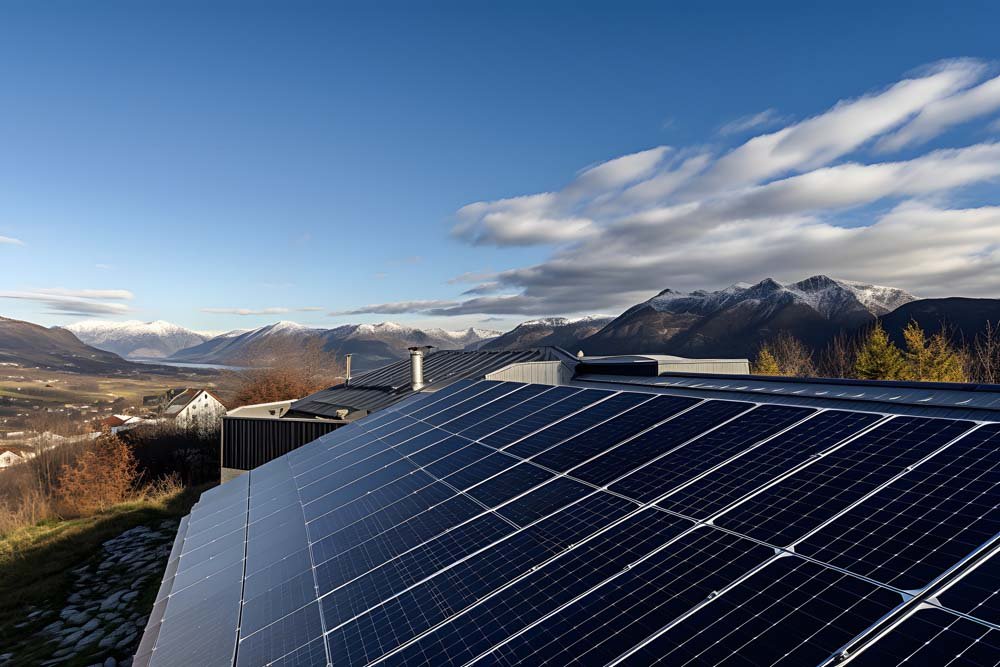In agribusiness, your energy choices are critical. Traditional sources have dominated, but solar panels are emerging as a savvy alternative. This shift isn’t just eco-friendly—it’s smart business.
Are solar panels a match for the reliability and cost of old-school energy? The stakes are high, with efficiency and sustainability in the balance. As the industry evolves, so does the potential for solar to lead the way.
You face a decision: continue with conventional energy or invest in solar panels for agribusiness. Let’s examine what this means for your operations, assessing the true cost and benefits of a sun-powered future.
Table of Contents
Understanding The Role Of Energy In Agribusiness
Energy plays an important role in agribusiness, where the efficient use of every drop of fuel and every kilowatt is vital to your farm’s productivity.
- Irrigation: Irrigation systems, crucial in dry regions, depend on energy to water crops effectively.
- Crop Production: Energy powers the machinery that plants, maintains, and harvests crops, affecting both operational efficiency and crop yield.
- Product Processing: Facilities that clean, process, and package crops for sale use energy extensively to meet market standards.
- Cold Storage: Energy ensures that cold storage units keep perishable goods fresh from the farm to the consumer.
- Transportation: Fuel is vital for transporting produce to market, impacting the efficiency and reliability of the supply chain.
- Facility Operations: Routine tasks, from lighting to machinery operation in farming facilities, require a consistent energy supply.
Understanding these aspects of energy use will help in evaluating the benefits and feasibility of integrating solar energy into your operations.
Traditional Energy Sources In Agribusiness
Agribusiness has long relied on traditional energy sources to fuel its expansive operations. Here’s how traditional energy sources have been utilized:
- Diesel Fuel: Essential for farm machinery, diesel drives operations but comes with high costs and emissions.
- Electricity From The Grid: Stationary operations are typically powered by electricity from the grid, which is subject to fluctuating costs. Another concern is the stability of the local power grid.
- Natural Gas: While it offers a cleaner burn for heating and equipment use, natural gas still contributes to greenhouse gases. Find a gas marketer that provides natural gas supply solutions for residential and business customers, offering fixed-rate plans, variable-rate plans, and green energy options.
- Coal: Although less common, coal is used in certain areas for its affordability despite its environmental footprint.
While these traditional sources have served agribusiness well, the growing need for eco-friendly and cost-effective alternatives is clear.
Advantages Of Solar Energy In Agribusiness
In the quest for a greener alternative, agribusinesses are setting their sights on the sun. Here’s why this renewable option is gaining traction:
- Sustainable Supply: Like clockwork, the sun comes up every day. Solar panels tap into this never-ending cycle, giving you a steady and reliable energy source that’s perfect for long-range farm planning.
- Cost Efficiency: With solar, the initial setup cost is offset by future savings, and the technology’s longevity means you can enjoy decades of reduced energy bills, adding to your farm’s financial stability.
- Grid Independence: Solar energy empowers farmers with energy independence, minimizing disruptions caused by grid outages and potentially reducing the costs associated with energy transmission and distribution.
- Eco-Friendly Footprint: Solar panels significantly cut down on greenhouse gas emissions, helping farms contribute to a cleaner environment. This also makes them more appealing to the growing market of eco-conscious consumers.
- Financial Support: The financial incentives for solar installation beneficial in terms of immediate cost reduction. Moreover, they can also enhance the property value of your agricultural assets.
Solar panels offer agribusinesses a savvy investment—they’re environmentally friendly and cost-effective, paving the way for a cleaner, more sustainable future in farming.

Solar Transition Considerations In Agribusiness
In agribusiness, shifting to solar is more than installing panels; it’s a strategic upgrade. As you weigh the practical steps and prepare for the hurdles, understanding what solar adoption entails can guide your decision.
- Infrastructure Modifications: Transitioning often requires significant changes to existing structures. Ensuring your land and buildings are suitable for solar panels is a key first step.
- Energy Storage Solutions: To counter solar energy’s intermittent nature, investment in energy storage systems is crucial for maintaining a reliable power supply.
- Permits And Regulations: Complying with local regulations is critical and involves understanding the intricacies of zoning, building codes, and available incentives.
Upgrading to solar power comes with challenges, but it also paves the way to energy independence and eco-conscious operation. With careful planning, your farm can have a greener and more cost-effective future.
Final Thoughts
As the agricultural sector looks forward, solar energy stands out as a proactive choice. It’s an investment in a sustainable operation that aligns with both economic and environmental goals. Opting for solar isn’t just about adopting new technology; it’s a commitment to a smarter, greener way of farming that also safeguards your financial interests.
While the transition to solar comes with a few considerations, the long-term benefits can be significant. Farms that integrate solar energy are not only reducing their carbon footprint but are also setting themselves up for future success. In an industry that’s always been about growth, solar energy represents a powerful way to grow responsibly and profitably.










